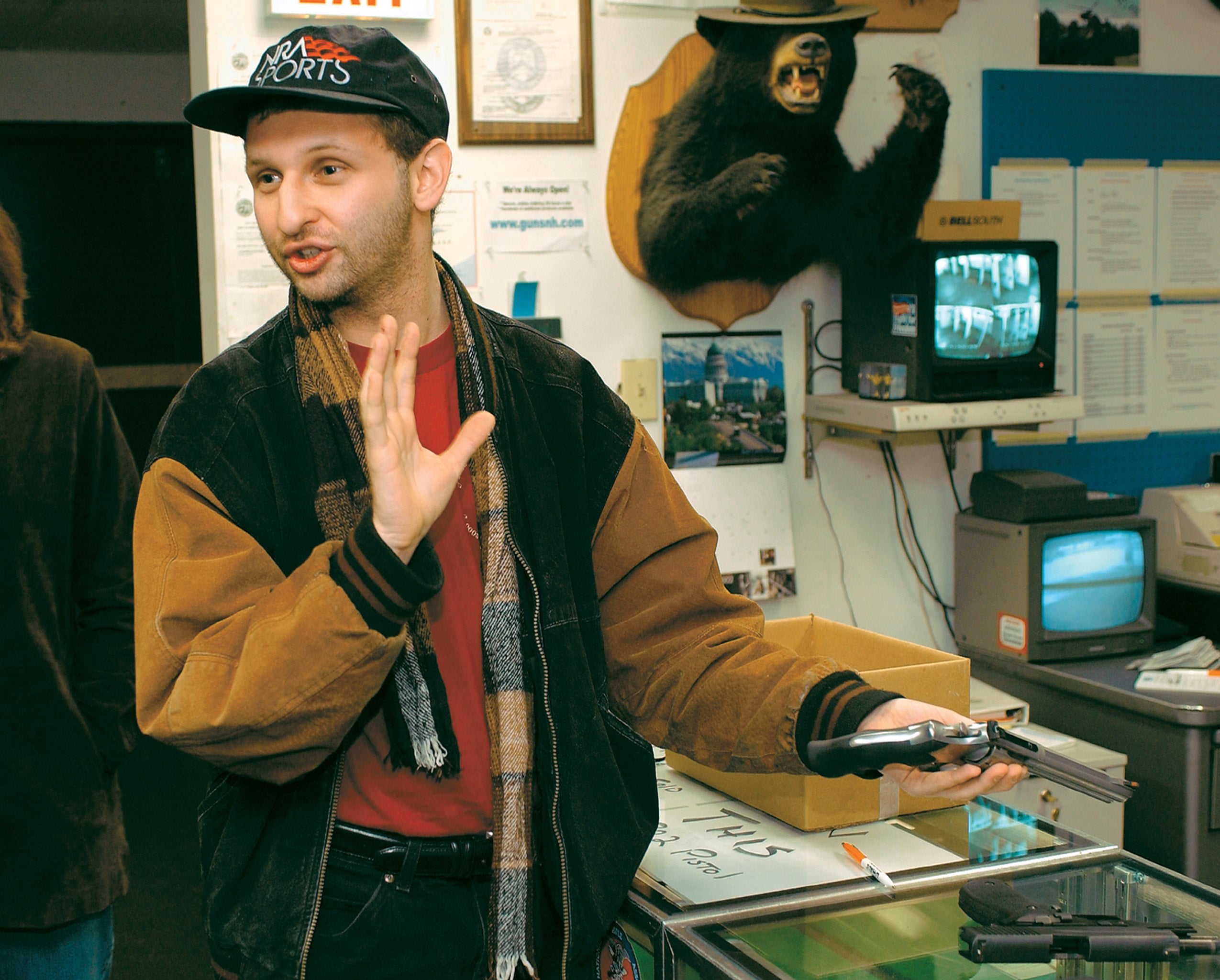Alexander “Sasha” Volokh ’03 has started Harvard Law School’s first target shooting club, for fun and trouble. In Harvard’s “quite liberal” environment he thought he would see if he “could get some people steamed up.”
He’s led several outings to the Manchester Firing Line Range in New Hampshire with a dozen or so students, to shoot weapons ranging from .22-caliber revolvers to machine guns. “There is a great feeling of accomplishment when you shoot and make a hole right in the middle of the target,” he said.
But as for trouble, there hasn’t been any. The target shooting club was approved by the administration before the end of the fall semester and has about 85 members on its mailing list, 4 to 5 percent of the HLS student body, noted Volokh, who is getting a Ph.D. in economics at Harvard as well as a J.D.
Although he has a taste for ideological rabble-rousing, Volokh describes himself as mild-mannered. His other extracurriculars include membership on the Law Review and singing baritone in the Scales of Justice. Volokh doesn’t approve of shooting (or driving) to blow off steam. “I’ve never gone to the range angry,” he said. “Guns are fine if they’re used properly. I’m not going to deny that they’re dangerous if you don’t.” During the outings, he and the club’s financial officer, Lisa Giroux ’03, and other experienced gun users teach neophytes. He says this is part of what appeals to him; the club is just as social as a trip to the bowling alley, although it isn’t competitive. (Volokh describes himself as “an OK shot,” but “no precision guy.”) But he also sees shooting as a political act.
Volokh says many people have political opinions about guns, but few have actually handled a firearm. He’s found that learning how to load, aim, and fire has made a difference to participants, both those who are pro- and anti-gun. For some who are anti-gun, it’s about getting to know what they want to ban. For other participants it’s about bridging a cultural rift, said Volokh: “They grew up in a culture where people went hunting or had rifles above their fireplace.”
Volokh fired his first shot at age 22. His brother, a professor at UCLA School of Law, took his gun control class to the firing range, and younger brother Sasha went along.
Although Volokh doesn’t own a gun (he says laws in Cambridge are too restrictive), he imagines that someday “for protection” he might. “Life is unpredictable,” he said, “and you never know what situation you are going to be thrown into later on. And so if, God forbid, you should ever have to use a gun, you should know what to do with it.”
He first came to this realization when he was 18. “My family never really felt strongly about guns. We’re Jews who emigrated from the Soviet Union in the ’70s.” But in 1992, after the Rodney King verdict, the LA riots changed all that.
Volokh remembers a mob running down the streets, breaking windows, burning down buildings, undeterred by the police. It was a few miles from his family’s home, but it made him feel helpless. He also recalls the image on the news of armed Korean liquor store owners standing on the roofs of their businesses “taking the protection of their lives and property into their own hands.”
